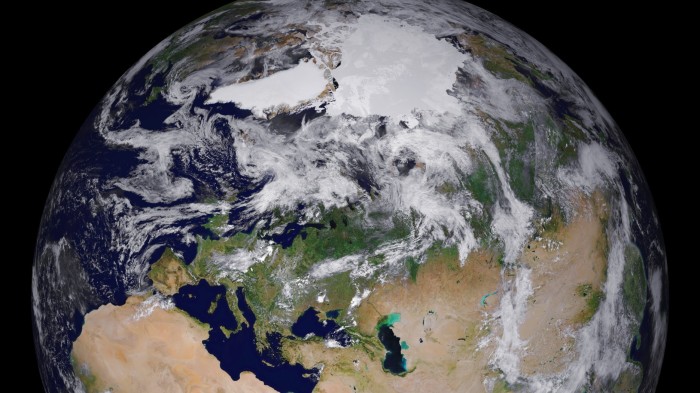Unlock the Editor’s Digest for free
Roula Khalaf, Editor of the FT, selects her favourite stories in this weekly newsletter.
The European Space Agency is seeking €1bn to develop a new satellite network providing military-grade intelligence to the EU as it prepares to push for the biggest budget in its 50-year history.
Josef Aschbacher, the ESA’s director-general, said the agency was, at the request of its member states and the EU, exploring a network capable of gathering “very high resolution optical radar data”, with computing and artificial intelligence capabilities on board.
“This will be something quite significant,” Aschbacher said.
The cost of delivering this, along with the infrastructure on the ground and launch, would be “something in the order of €1bn . . . if member states subscribe to it”, he said.
The new network, first openly discussed last March, would be the first big ESA programme designed for dual use — therefore defence and security as well as civil purposes. It is expected initially to be comprised of 15-30 highly advanced earth observation satellites, but could be scaled over time.
Maxime Puteaux, principal at space consultancy Novaspace, said the €1bn estimate was likely only to be an initial outlay.
“A full-scale geointelligence constellation with multi-orbit earth observation capabilities could easily amount to €4bn to €6bn over a 10 to 15-year horizon,” he said.
Based on the ambitions expressed by the European Commission, “this may very well evolve into one of Europe’s most strategically significant space investments of the coming decade”, Puteaux added.
Aschbacher’s comments on the new constellation came at the end of a two-day meeting of the ESA’s 23 member states, as they prepare for a ministerial council in November when the agency’s budget for the next three years will be decided. The director-general confirmed the agency was looking for a 36 per cent increase in funding to about €23bn.
The big jump comes as Europe seeks to boost defence spending, including on space capabilities, to increase its autonomy and security in light of a new more volatile transatlantic relationship under US President Donald Trump.
On Tuesday, the EU defence and space commissioner Andrius Kubilius told a summit in Brussels it was “obvious that . . . we need to augment existing systems or develop new systems which will provide us with the most advanced space capabilities”.
It was “crucial”, he said, to “have very high resolution geointelligence data” that could be gathered every 30 minutes “instead of only once a day, which is the capability we have today”.
The ESA, meanwhile, is struggling to adapt to the potentially devastating consequences of dramatic budget cuts being proposed for its main partner, Nasa in the US.
The White House is proposing a 24 per cent cut to the agency’s overall budget, including a near halving of funding for science. It amounts to the smallest Nasa budget since 1961 and the smallest science budget in more than 40 years, according to The Planetary Society, a US space non-governmental organisation. Many of the programmes on which Europe has collaborated, such as the Lunar Gateway, a space station designed to orbit the moon, and several of the Artemis moon missions, are expected to be targeted in the cuts.
The ESA was discussing with industry suppliers alternative missions for the programmes that previously relied on Nasa, said Daniel Neuenschwander, the ESA’s director of human and robotic exploration.
Carole Mundell, head of the ESA’s science directorate, suggested three of the 19 science programmes the agency shared with Nasa could face challenges without its US partner. These are Lisa, a space probe to detect gravitational waves, EnVision, an orbital mission to Venus which has a Nasa instrument on board, and NewAthena, which will be the world’s largest X-ray observatory, due to be adopted by ESA member states in 2027.
However, for the rest “we believe that with good planning, with the capabilities we have within our programme, we can potentially mitigate impact”, Mundell said.
